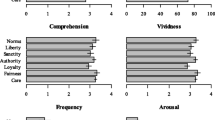Abstract
In Morals by Agreement, David Gauthier tries to provide a justification of morality from morally neutral premises within the constraints of an instrumental conception of reason. But his reliance on this narrow conception of reason creates problems, for it suggests that moral motivation is self-interested. However, Gauthier holds that to act morally is to act for the sake of morality and others, not oneself. An individual who so acts has what he calls an affective capacity for morality. He attempts to reconcile the tension between the self-interested account of moral behaviour and the affective capacity for morality by showing that the latter could develop from the former without violating the constraints of instrumental rationality. I argue, first, that his account is incomplete and assumes what it has to demonstrate; and, second, that this cannot be remedied with any plausibility. Finally, I argue that Gauthier covertly relies on a substantive claim about human good that is inconsistent with the instrumental conception of reason.
Similar content being viewed by others
Author information
Authors and Affiliations
Rights and permissions
About this article
Cite this article
Testa, G. Gauthier and the Capacity for Morality. Res Publica 9, 223–242 (2003). https://doi.org/10.1023/A:1026237202869
Issue Date:
DOI: https://doi.org/10.1023/A:1026237202869




